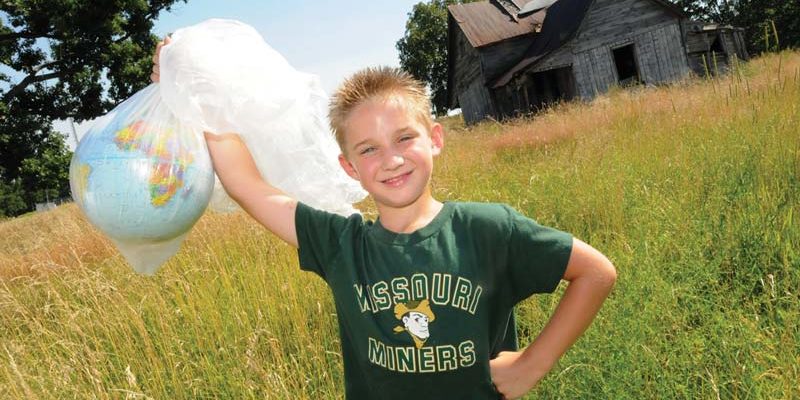Research
A lean, green manufacturing machine
When corporate America first started talking about lean manufacturing in the 1980s and 1990s, they were looking at ways to cut costs while maintaining customer satisfaction. These days, companies are also interested in portraying themselves as environmentally conscious, but are concerned about the costs associated with green initiatives.
Read More »Building an energy superhighway
Missouri S&T researchers are part of a new effort that aims to transform the nation’s power grid into an Internet of sorts for energy – a grid that will speed renewable electric-energy technologies into every home and business.
Read More »Hydrogen: the hype and the hope
You probably won’t be able to drive down the highway in your own non-polluting vehicle that runs on hydrogen power any time soon. Nor will you be powering your whole house with hydrogen-based technology in the coming years. Someday soon, though, you might own a cell phone equipped with a hydrogen-powered fuel cell instead of a battery. The cell phone would come with an insert-ready hydrogen pack and a small solar array for charging.
Read More »An eco-challenge for engineers
A student team from Missouri S&T has three years to design the best eco-friendly car in North America. Seventeen teams from the United States and Canada have been selected to participate in the EcoCAR competition, which is supported by the U.S. Department of Energy, General Motors and Natural Resources Canada.
Read More »S&T students take second in Metcalf and Eddy
A five-student team from Missouri S&T took second place in the national finals of the Metcalf and Eddy Academic Design Contest held in New York in May. This is the first time Missouri S&T has participated in the competition.
Read More »A big look into the ultra small
Pairing quantum dots with a protein transporter, three students fromMissouri S&T spent their summer in Taiwan trying to develop a moreeffective and efficient drug delivery method.
Read More »What we don’t know about liquefaction could hurt us
In one corner of a huge civil engineering laboratory on campus, Ronaldo Luna watches a machine shake silt from the Mississippi River until it liquefies.
Read More »Getting more out of Missouri’s waterways
With 12 inland ports and increasing biofuel production, Missouri can increase its use and capacity of freight traffic on the state’s waterways.
Read More »Greening in a bottle
Every year, more than 30 billion water bottles are added to America’s landfills, creating a mountainous environmental problem. But if Missouri S&T research is successful, the plastic bottles of the future could literally disappear within four months of being discarded.
Read More »A new way to magnify the view
Missouri S&T has a new research toy – a focused ion beam (FIB) scanning electron microscope that is capable of shrinking images of objects a million times and then etching them on the head of a pin.
Read More »

